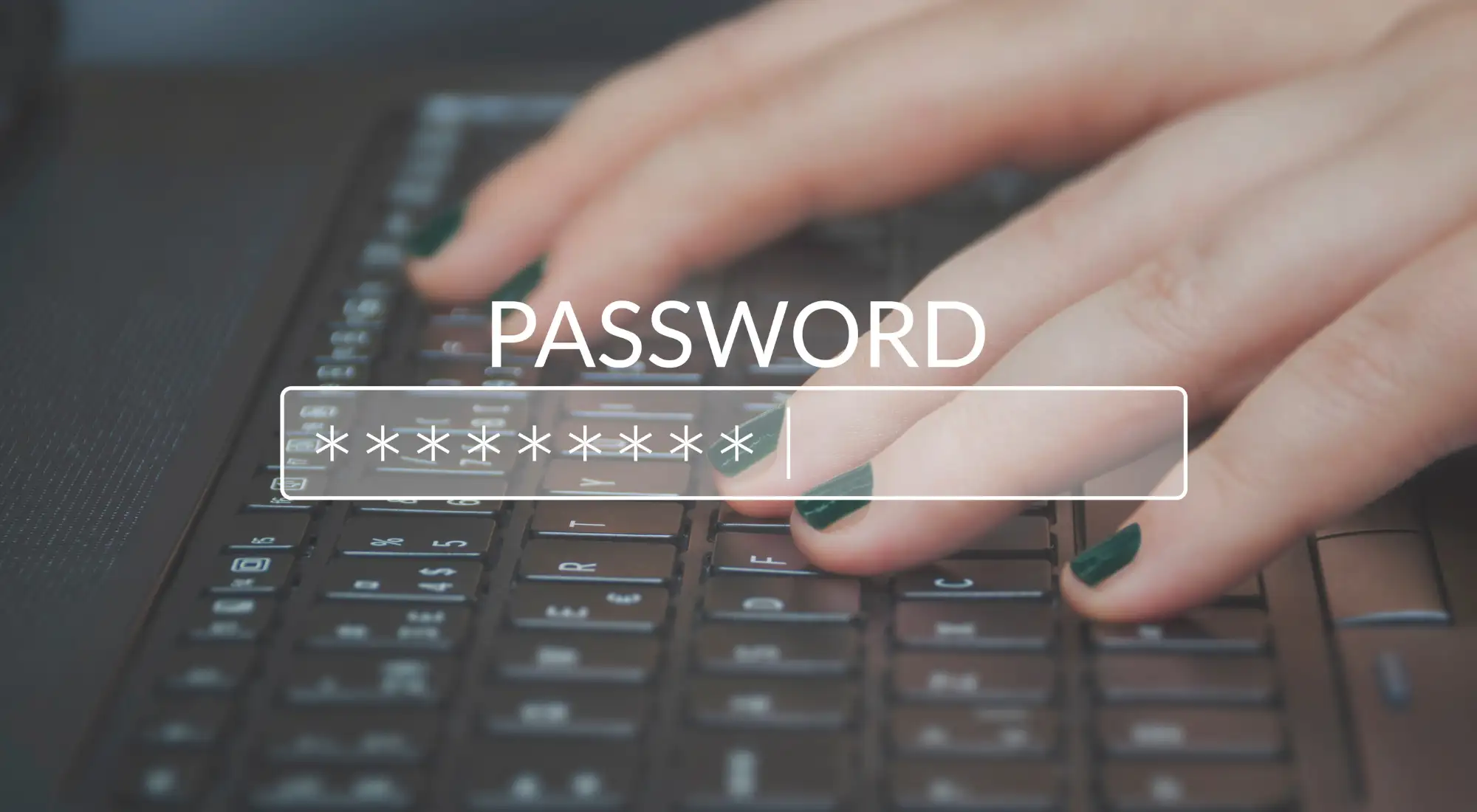Are you worried about the security of your online accounts? Do you want to protect your sensitive data and prevent unauthorised access? It’s time to start using complex passwords.
This article explores the importance of complex passwords and their benefits.
By using complex passwords, you can effectively reduce the risk of attacks, comply with regulations, and safeguard customer information. Plus, they serve as a strong defence against cybercriminals.
Boost your security and discover ten simple reasons why complex passwords are crucial in today’s digital world.
Key Takeaways
- Complex passwords protect sensitive data and prevent unauthorised access.
- They act as a formidable barrier against cybercriminals and reduce the risk of data breaches.
- Complex passwords enhance business reputation and demonstrate commitment to employee security.
- They ensure compliance with industry regulations and save businesses from financial burden and reputation damage.
Strong Passwords Are Harder to Crack
To enhance the security of your accounts, it’s essential to create strong passwords that are difficult for hackers to crack. Weak passwords can leave your personal information vulnerable to cyberattacks. By using complex passwords, you can significantly increase the security of your accounts.
Hackers often use sophisticated techniques to crack passwords, such as brute force or dictionary attacks. A strong password that includes a combination of letters, numbers, and special characters makes it much harder for them to guess or crack your password. Additionally, it’s important to avoid using easily guessable information, such as your name or birthdate, as part of your password.
Complex Passwords Provide Better Defense Against Brute Force Attacks
You can enhance the security of your accounts by using complex passwords, which provide a more robust defence against brute force attacks.
Here are four reasons why complex passwords are essential:
- Increased complexity makes it harder for attackers to guess or crack your password.
- Random combinations of letters, numbers, and symbols create a more robust defence against automated brute force attacks.
- Complex passwords introduce an element of unpredictability that makes it difficult for hackers to decipher your password.
- Longer and more intricate passwords add an extra layer of security, reducing the risk of unauthorised access to your accounts.
By utilising complex passwords, you significantly reduce the chances of falling victim to brute-force attacks.
Unique Passwords Minimise the Risk of Multiple Account Breaches
Using a unique password for each account minimises the risk of multiple account breaches. When you reuse the same password across different accounts, you create a vulnerability that cybercriminals can exploit. If one of your accounts is compromised, attackers can easily access your other accounts, putting your sensitive information at risk.
Using unique passwords creates a barrier that prevents unauthorised access to your accounts. Even if one account is breached, your other accounts remain secure. This practice significantly reduces the likelihood of multiple account breaches and protects your personal information, financial records, and other valuable data from falling into the wrong hands.
Take the time to create strong, unique passwords for each of your accounts to safeguard your online presence.
Lengthy Passwords Offer Increased Protection Against Dictionary Attacks
By using long passwords, you can significantly increase your protection against dictionary attacks. Why is this important? Consider these four key points:
- Enhanced Security: Lengthy passwords provide a more significant number of possible combinations, making it harder for hackers to crack them using dictionary-based attack methods.
- Reduced Vulnerability: Long passwords that include a mix of uppercase and lowercase letters, numbers, and special characters are less likely to be found in a dictionary, making them more resistant to dictionary attacks.
- Increased Complexity: Longer passwords make it more challenging for attackers to guess or predict, as they introduce more randomness and variability.
- Added Layer of Defence: Utilising lengthy passwords adds another layer of protection to your accounts, making it harder for cybercriminals to gain unauthorised access.
Random Character Combinations Make It Difficult for Hackers to Guess Passwords
When creating a password, incorporating random character combinations adds an extra layer of security, making it significantly more challenging for hackers to guess.
By using a combination of uppercase and lowercase letters, numbers, and special characters, you create a password that’s difficult to crack. Hackers typically rely on common patterns and dictionary words to guess passwords, but random character combinations make this strategy ineffective.
For example, instead of using a simple word like ‘password,’ you could create a password like ‘P@ssw0rd!’ that includes a mix of characters. This randomness makes it nearly impossible for hackers to guess your password through trial and error.
Complex Passwords Mitigate the Risk of Password Guessing Through Personal Information
Protect your personal information from password guessing attempts by incorporating complex passwords. By utilising complex passwords, you can mitigate the risk of hackers guessing your password through personal information. Here are four reasons why complex passwords are crucial in safeguarding your personal data:
- It reduces the likelihood of hackers guessing your password by incorporating random combinations of letters, numbers, and special characters.
- Complex passwords make it harder for hackers to crack your password using personal information such as your name, birthdate, or address.
- By using complex passwords, you create a stronger defence against password guessing attacks, making it more challenging for unauthorised individuals to gain access to your accounts.
- Complex passwords act as a barrier against identity theft and compromised emails, ensuring the security and privacy of your personal information.
Password Complexity Enhances the Security of Sensitive Personal Data
Enhance the security of your sensitive personal data by utilising complex passwords.
Password complexity plays a crucial role in safeguarding your valuable information from unauthorised access. By incorporating a combination of uppercase and lowercase letters, numbers, and special characters, you create a formidable barrier against cyber threats.
Complex passwords introduce an element of randomness that makes guessing passwords significantly harder for hackers. This added layer of security reduces the risk of identity theft, compromised emails, and unauthorised incursions into your accounts.
Moreover, complex passwords protect customer information, financial records, and intellectual property. By prioritising password complexity, you demonstrate your commitment to data protection and cybersecurity.
Using Complex Passwords Reduces the Likelihood of Password Reuse
Reduce the likelihood of password reuse by implementing complex passwords. By using complex passwords, you can significantly reduce the risk of reusing the same password across multiple accounts. Here’s why:
- Unique passwords for each account: Complex passwords make it easier to create unique combinations of characters, numbers, and symbols for every account you have.
- Minimise the impact of a compromised password: If one of your accounts gets hacked, using complex passwords ensures that the hacker won’t be able to access your other accounts.
- Stay ahead of cybercriminals: Complex passwords make it harder for cybercriminals to guess or crack your password, reducing the likelihood of unauthorised access.
- Protect sensitive information: With complex passwords, you add an extra layer of security to safeguard your personal data, financial information, and other sensitive details.
Complex Passwords Make It Harder for Cybercriminals to Infiltrate Your Accounts
By implementing complex passwords, you can significantly increase the difficulty for cybercriminals to infiltrate your accounts, providing an added layer of security.
Complex passwords are more complicated to crack because they combine uppercase and lowercase letters, numbers, and special characters. This makes it more challenging for hackers to guess or use automated tools to decrypt passwords.
By using a mix of characters and making your password longer, you create a password that is more resistant to brute-force attacks. Cybercriminals often use sophisticated techniques to crack passwords, but by using complex passwords, you can make their job much harder.
Implementing Complex Passwords Is a Proactive Measure in the Face of Evolving Cyber Threats
To stay ahead of evolving cyber threats; you must take proactive measures such as implementing complex passwords. Using complex passwords can significantly enhance your security posture and protect yourself from cyber-attacks. Here are four reasons why implementing complex passwords is a proactive measure in the face of evolving cyber threats:
- Mitigates the risk of brute force attacks by making it harder for hackers to guess your password.
- Acts as a formidable barrier against unauthorised access, safeguarding your sensitive data and personal information.
- Reduces the likelihood of falling victim to phishing attacks, as complex passwords are more difficult to guess or manipulate.
- Demonstrates your commitment to cybersecurity and data protection, enhancing your reputation and building trust with customers, partners, and stakeholders.
To protect your online accounts and sensitive data, it’s essential to start using complex passwords. By doing so, you can effectively mitigate the risk of cyber attacks, such as brute force and phishing scams.
Complex passwords enhance your cybersecurity posture, ensure compliance with industry regulations, and safeguard customer information. Taking the proactive step of implementing complex passwords will not only boost your security but could mitigate a potential cybersecurity incident.



